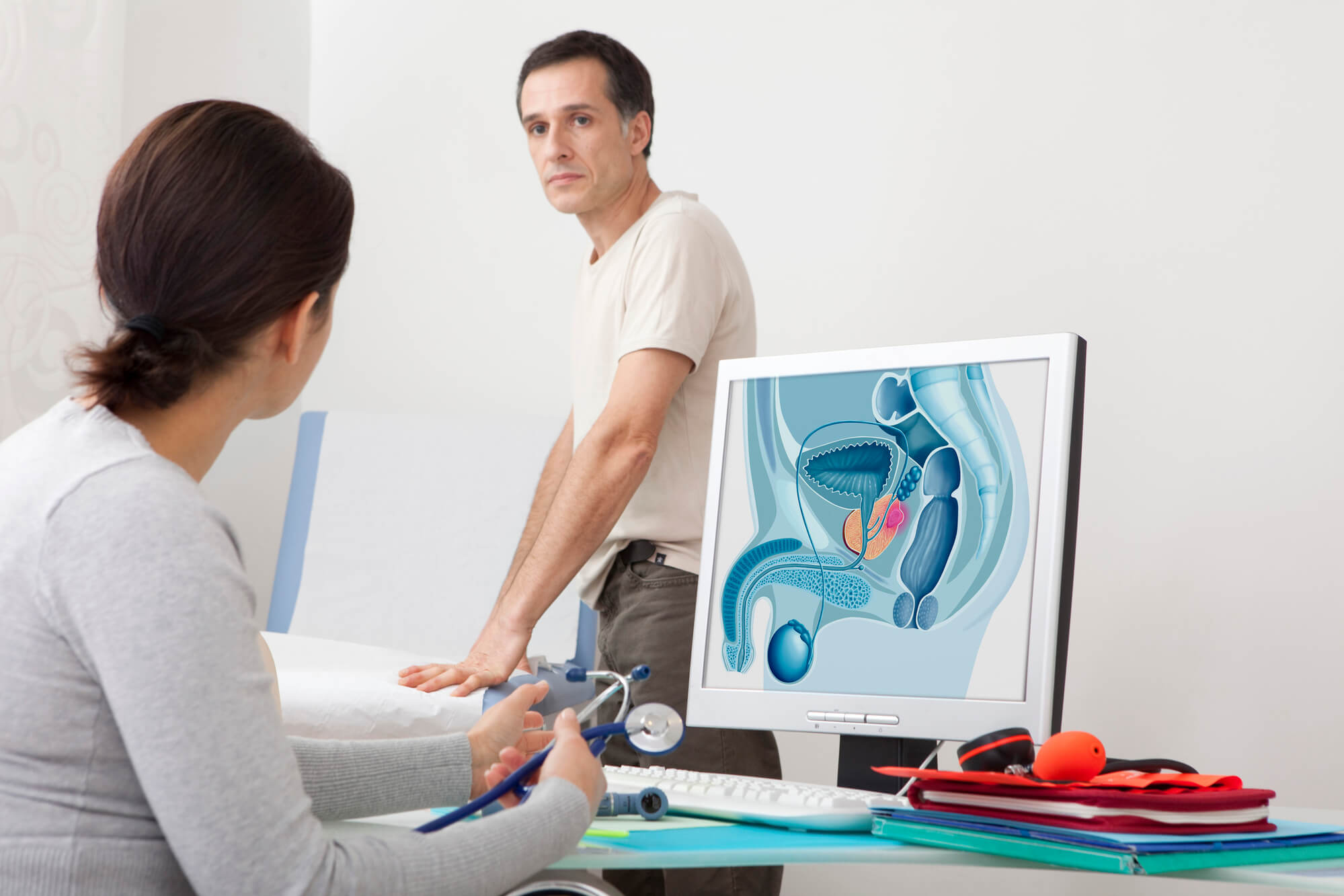Andrology entails issues like
-
Erectile dysfunction, which is the inability to achieve or maintain erection needed
to have sexual intercourse. It is often stereotypically considered an embarrassment for men,
however, it’s a very common medical condition and can be easily cured with the right
treatment.
-
Infertility due to male factors counts for 50% of the infertility issues. Though it is
stereotypically considered embarrassing, it can be cured with the right treatment and
medical help. Low sperm production, blockages preventing the delivery of sperms or abnormal
sperm function could lead to infertility.
-
Male hormone deficiency is a critical concern as they play a critical part in the process
of reproduction. Deficiencies in male hormones and androgens can immensely impact the male
attributes in men and could lead to many other health issues.
-
Prostate disease is common among men aged above 50. The gland secretes fluid that is
associate with sperm formation in men. Some common problems around the prostate gland are
prostatitis, prostate enlargement and prostate cancer.
Causes of Andrological issues include
There could be several different reasons for andrological issues and some are even beyond human
control. Some common reasons include:
-
diabetes, smoking, alcoholism, obesity,
-
Medications for blood pressure and antidepressants
-
Hormonal problems
-
Surgery for prostate, bladder, colon
-
Prostate cancer treatment
-
Spinal cord injuries
Also, andrological issues could be because of anatomical problems, genetic defects or could be
due to prolonged exposure to medication, chemicals and toxins.
Diagnosis and treatment
-
Semen Analysis is a process that evaluates the characteristics of the men’s semen and the
sperms contained in it. It evaluates male fertility or verifies the success of vasectomy.
-
Antisperm Antibody Testing is a process that looks for antibodies or special proteins that
fight against sperm in vaginal fluid, blood or semen
-
Post-vasectomy Semen Analysis is the process of examining the semen under a microscope to
check if there are sperms are present. It confirms the success of the vasectomy procedure.
Some other diagnosis procedures include Retrograde Ejaculation Evaluation, Testicular biopsy
evaluation, Sperm Processing for A.R.T. Preparation Method. Semen and/or Testicular Tissue
Cryopreservation and Thawing and Sperm banking are often used to solve reproductive issues.
Treatment under Andrology
Treatments for male fertility issues are primarily around the medical conditions underneath
leading to infertility. After conducting the fertility tests to facilitate the diagnosis, the
andrologist takes up the best treatment according to the problem, it’s situation and
seriousness. Treatment could include drug therapy to treat hormonal disorders or surgeries like
varicoceles and other correctional surgeries that create obstructions in the reproductive tract.
In case of further unresolved fertility issues, procedures like intracytoplasmic sperm
injection(icsi) in conjunction with IVF is used to achieve pregnancy. ICSI is the process of
inseminating a single sperm to the egg, derived from IVF that is eventually implanted to the
uterus. Specifically, the treatment could involve
-
Surgery includes procedures like correction of a varicocele or repair of obstructions on
vas deferens, a reversal of prior vasectomies, etc. In cases where the semen does not
contain sperm, surgical procedures are used to retrieve them directly from testicles or
epididymis.
-
Treating sexual intercourse issues through counselling or medications can solve a
significant share of male reproductive issues
-
Hormone treatments are suggested when the body produces more or less of a specific
hormone. The doctor conducts hormone replacement or prescribes medications in such cases.
-
Treatment for infections with antibiotics and other drugs. However, this can cure an
infection in the reproductive tract but doesn’t often restore reproductive fitness.
-
Assisted reproductive technology is the process of obtaining sperms through normal
ejaculation, from donors or through surgical procedure depending upon the case. The sperms
are then inserted to the female genital tract or used for Vitro fertilization or
intracytoplasmic sperm injection.
